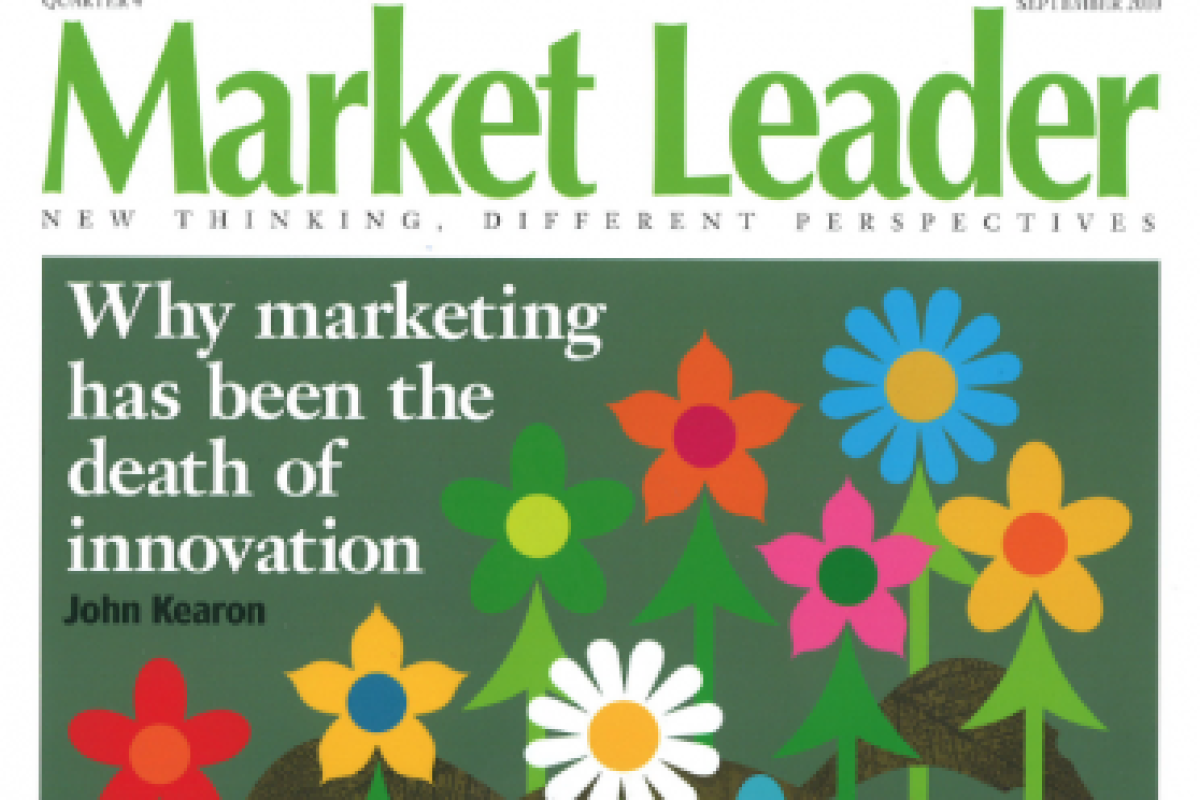Rory Sutherland argues that mechanistic processes, artificial dichotomies and the urge to compartmentalise are alien to creative activity
One thing that often surprises people is my adoration of Ronald Reagan. Part of my admiration is simply for his breadth – he was somewhere on the scale between ‘pretty good’ and ‘great’ at about eight different things: actor, baseball commentator, radio announcer, television star, letter writer, comedian, governor, president.
That suggests someone far more unusual in statistical terms than people who are simply good at one thing. After all, by definition, if you take any one talent there will be someone who is better at it than anyone else. Things only get interesting in terms of probability when that someone is good at something else as well. Astonishingly there are 12 people who have played for England at both cricket and soccer.
Another person who does well on this score is the less well-known Eric Maschwitz. The Birmingham-born son of Jewish immigrants from Poland, he ended up as head of light entertainment at the BBC. For most people this would be achievement enough, but in an earlier life he had written the lyrics to songs such as Goodnight Vienna, A Nightingale Sang in Berkeley Square and These Foolish Things. I imagine this background came in handy when he was in television, since arguments with any creative staff could be settled with the simple ‘And how many of the greatest song lyrics of the 20th century did you write, exactly?'
These Foolish Things is one of those remarkable songs where the lyrics inarguably make as large a contribution to a song's greatness as its tune or arrangement. There are a few songs where this is true (Anything Goes, co-written by P. G. Wodehouse is certainly one, as is quite a bit of Bob Dylan and a good deal of rap). But for every instance where the lyrics are integral to a song's genius there are many more where they are not. I don't see future professors of English being much troubled by Wooly Bully, Duke of Earl or Louie Louie, for instance.
It would be fun to get into a long debate about the relative importance of lyrics, music and execution (and how good would Ring of Fire have been without the Mexican horns?) But I don't think we should because we are dealing with complex systems where the importance of each element cannot be assessed in isolation from the other two.
The constituent parts of good advertising are just the same. Any ad consists of various components whose individual value is unknowable in isolation. The relative role of art and copy. The interplay between conception and execution. The relationship between what you say and how you say it; reason and emotion; the proposition versus the execution. Here again the interdependencies make it impossible to assess one component in the absence of the others.
By and large the music industry knows this and hence it usually doesn't attempt to impose any strict process or routine on the act of creation. Allowing work to be created in a non-linear black-box process is called Negative Capability (thanks to David Meikle of Salt for this useful concept which he ingeniously borrowed from Keats).
Sadly, clients and their procurement departments are rarely blessed with this ability and the work of agencies suffers.
While nobody would stipulate that you can only create a good song by writing the lyrics first, the advertising approval process now requires us to judge a proposition in advance of executing it. This is absurd. Just as the words to Wooly Bully look pretty dismal until expressed in music, so the proposition to the first Economist poster ‘Don't read this magazine and you'll be a loser’ is pretty dire in the absence of a joke.
The worst effect is to create false dichotomies in advertising – where one activity is mistakenly seen as taking place at the expense of another. This is very much how I felt reading the debate at the Marketing Society website (http://blog.marketing-soc.org.uk/2010/06/judie-lannonmarket- leader/) between Paul Feldwick and Mark Sherrington about opposing views towards internet marketing.
Internet marketing is immensely valuable. And because of that, classical mass marketing is more important than ever. The two activities are complementary. If the web provides people with more opportunities to buy a product, then TV ads for that product suddenly become more effective, not less. Where's the conflict?
The internet no more diminishes the importance of great mass marketing or brands than a great lyric diminishes the importance of a great tunesmith. The idea that one competes with the other is like suggesting the Heathrow Express competes with British Airways.
Rory Sutherland is executive creative director and vice chairman of OgilvyOne London and Ogilvy Group UK.
